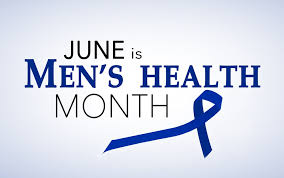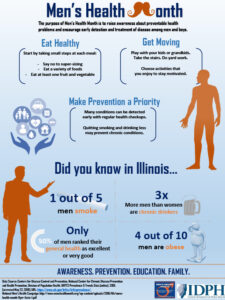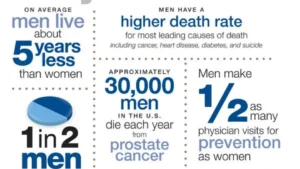Men in this age range are encouraged to discuss the health concerns below with their doctors. These discussions can be part of a yearly annual wellness visit. While you may think you don’t need some of these tests, establishing a base line can be useful for continued health monitoring as you age, or as more acute health concerns arise.
- Physical exam: check blood pressure, screen for obesity and assess body composition (waist circumference). Testicular exam and testicular self-exam are important at this age.
- Metabolic screening: fasting blood sugar and fasting lipid profile based on risk and family history.
- Vaccines: influenza, COVID-19, Hepatitis A/B, HPV, Tdap and MMR should be considered.
- STI screening: HIV, Hepatitis B/C, syphilis, gonorrhea and chlamydia screening should be considered, and pre-exposure prophylaxis for HIV (PreP) should be discussed.
- Assessment of risky behaviors: discuss any use of tobacco, alcohol, recreational drugs, anabolic steroids, as well as use of seatbelts and helmets and gun safety.
- Family planning: “pre-conception” counseling to educate men that adopting a healthy lifestyle—exercising, eating healthy foods, and avoiding substances—at an early age improves the chances of conceiving and having a healthy pregnancy and a healthy child.
Recommended screenings for adult men over 40
These screenings are similar to those recommended for younger men but start to look at health concerns that most often appear in middle age.
- Physical exam: check blood pressure, screen for obesity, measure body composition and consider prostate exam (in some cases).
- Metabolic screening: fasting blood sugar and fasting lipid profile and estimation of cardiovascular risk.
- Vaccines: influenza, covid-19, Hepatitis A/B, HPV (through age 45), Tdap and MMR. Shingles vaccine is recommended for adults over 50.
- STI screening: HIV, Hepatitis B/C, syphilis, gonorrhea and chlamydia screening should be considered, and pre-exposure prophylaxis for HIV (PreP) should be discussed.
- Cardiovascular screening: based on risk and symptoms (may include stress testing or coronary artery calcium score).
- Cancer screening: based on family history and personal risks. May include prostate, colon and lung cancer screening as well as skin exam.
- Eye exam.
Recommended screenings for adult men over 65
Older men should continue to evaluate their health and make lifestyle changes based on conversations with their doctors to ensure they are able to live life to the fullest.
- Physical exam: blood pressure, height and weight, waist circumference and prostate exam.
- Metabolic screening: fasting blood sugar, fasting lipid profile, thyroid function (in some cases).
- Vaccines: influenza, covid-19, Hepatitis A/B, Tdap, Pneumovax/Prevnar and Shingles.
- STI screening: based on risk.
- Cardiovascular screening: abdominal ultrasound, coronary artery calcium score and stress testing based on risk and symptoms.
- Cancer screening: prostate, colon and lung as well as skin exam.
- Osteoporosis: screening should be considered in men over 70, men who lose height over time or have a low impact fracture. Fall risk assessment should be completed.
- Eye exam.
Mental health is an important determinant of overall health and quality of life at every age. Although men are more likely to suffer “deaths of despair” including alcoholism, overdose and suicide, they are far less likely than women to seek out mental health services. Undiagnosed and untreated mood disorders in young men are associated with impaired learning, risk-taking behaviors, use of substances and violence. Adult men with chronic diseases like diabetes and cardiovascular disease have worse outcomes when they also suffer from depression, and depression is associated with decreased longevity in older men. Men are less likely to get treated than a women in screening or when signs or symptoms arise until they get in the way or regarding mental health do men make a move and help yourself since no one may do it for you. Help yourself its June make a change for the best in your health!


